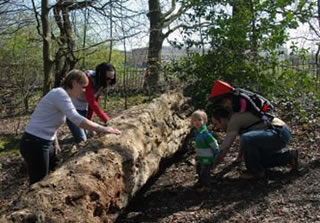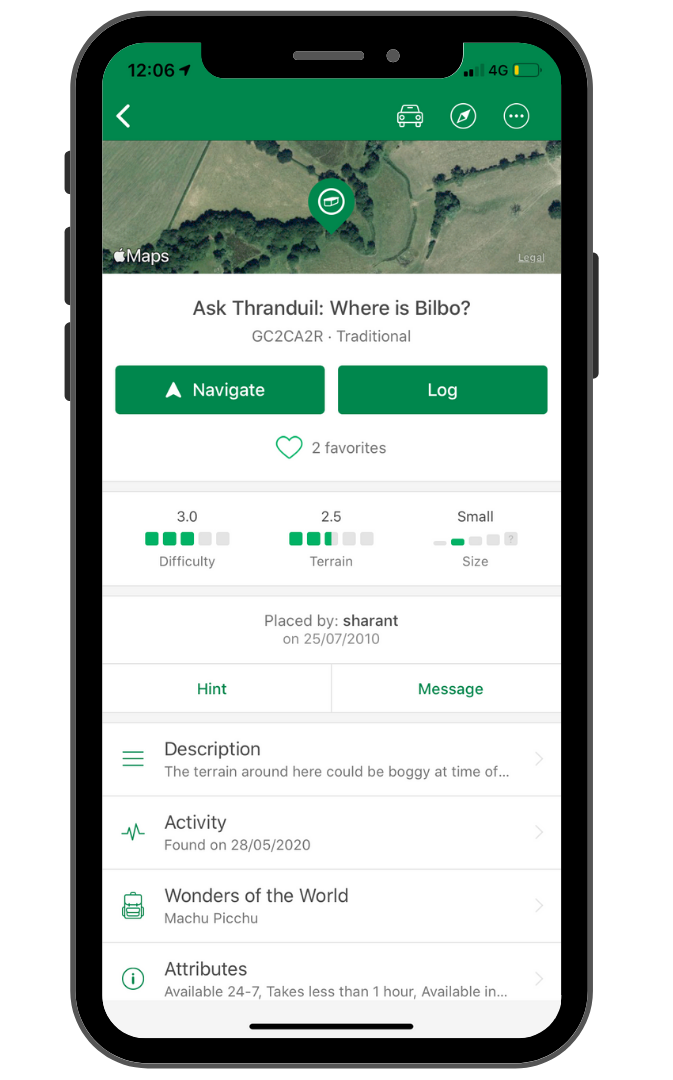We value your privacy
We use essential cookies to make this website work.
In addition, we would like to set cookies to help us understand how our website is used.We use essential cookies to make this website work.
In addition, we would like to set cookies to help us understand how our website is used.Imagine a pastime which can be enjoyed by the whole family that combines technology with outdoor adventure and:

Geocaching (pronounced geo-kash-ing) is a worldwide outdoor treasure hunting game that encompasses all of the above and much more. There are over 3 million geocaches hidden worldwide and over 5 million people who play the game.
Geocaches are hidden all over the world by fellow geocachers. A geocacher will go to a location which usually has some special interest or beauty. This is often one of their favourite places to visit. At the location, they will hide a small waterproof container containing a few varied bits and pieces (usually of little value), a logbook and a pen or pencil. Using their smartphone or GPS receiver, the geocacher records the coordinates of their geocache and returns home to log its existence on a website.

Another geocacher will see the geocache listing online or within a geocaching app, and go in search of it.
When they find it, the finder may take something from the geocache and leave something in return, and for posterity, enter a log in the logbook. If you take something, leave something of equal or greater value in return and leave the geocache as you found it (hidden of course).
The seeker should log that they have found the geocache and pass any comments they wish - this can be done using an app whilst out in the field, or on the website once at home. These logs are important to the geocache hider; it is part of their 'reward' for hiding the geocache, so some detail should be included.
You can read some tips on how to find your first geocache here.
Before placing your own geocache, we strongly advise that you build up your enthusiasm for and commitment to the game over a period of time. The greatest proportion of geocaching 'drop-outs' occur in the first 12 months after starting. The result can often lead to unwanted and unmaintained geocaches geo-littering the countryside. We would prefer for this not to happen, as it spoils the game for everyone to find a neglected geocache. When you are ready to hide your own geocache, make sure you read our advice here.


The Geocaching Association of Great Britain was set up to forward geocaching in the UK and to help new geocachers learn about the game. Do you want to find out more? The next step is to download our helpful What is Geocaching leaflet and to visit our Finding Your First Geocache page for more help. You may also wish to check out the other help resources available on our website - you can view them here. There are many sources of information about geocaching on the internet, but when it comes to actually going out and finding the first geocache, nothing can replace the actual experience.
If you are genuinely interested in geocaching and would like some help, the GAGB will try to find a geocacher in your area who is willing to meet you and escort you on your first geocaching trip.
If you want some help, or have any questions, send an email to gagbcontact@gagb.org.uk.
You can find out about the history of geocaching here.